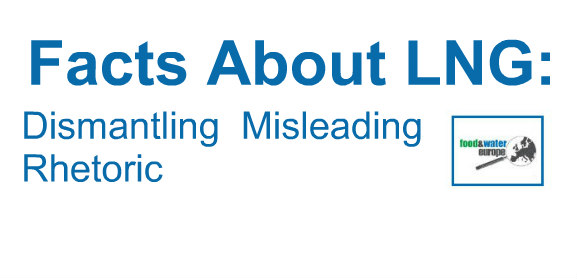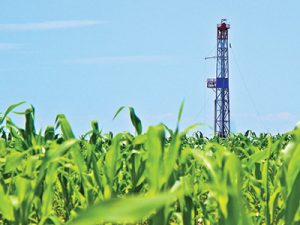Fracking torpedoes implementation of Paris Agreement on Climate Change
(German Version)
Berlin, 10 February 2017 — Today, one day before the German legislative package on fracking enters into force, environmental umbrella organization Deutscher Naturschutzring (DNR) – with its member organizations Bund für Umwelt und Naturschutz Deutschland (BUND), Naturschutzbund Deutschland (NABU) and Robin Wood as well as Deutsche Umwelthilfe (DUH), Umweltinstitut München, PowerShift and Food & Water Europe – fears that now more fracking projects will be realized. They are particularly concerned that fracking in tight sandstone layers, so-called tight gas fracking, is explicitly authorized by the new legislation, and could even be permitted in otherwise protected areas. There are also loopholes allowing fracking for “research projects” in shale, clay, coal bed and marl rock formations.
With this fracking policy, the German government undermines its own goal of being a climate protection leader. At the same time more and more countries in Europe are deciding on fracking bans, the grand coalition in Germany is prolonging the fossil era and hampering the implementation of the Paris Agreement with this fracking legislation, adopted in June 2016. This is a devastating signal to the international community, particularly since Germany will be in the international spotlight, not only hosting this year’s G20 summit but also the United Nations Climate Change Conference.
“We need a clear ban on any kind of oil and gas fracking in order to reach the climate goals as adopted in the Paris Agreement. The German Government has to live up to its international promises and speed up the energy transition [Energiewende] instead of further relying on bygone ages by developing fossil fuels,” says DNR president Prof. Dr. Kai Niebert.
According to the environment protection and nature conservation organizations, it’s now also up to the German federal states to finally ban fracking. The legislative package allows federal state governments to veto research projects for fracking in shale, clay, coal bed and marl rock formations. By consistently identifying protected areas, federal states can moreover rule out tight gas fracking.
Contact:
Andy Gheorghiu, Food & Water Europe, Fracking Policy Advisor, Food & Water Europe, Tel.: 05631/5069507, Mobil: 0160/2030974, E-Mail: [email protected]
Daniel Hiß, DNR-Frackingexperte, Mobil: 0157/89203007, E-Mail: [email protected]
Ann Kathrin Schneider, BUND Leiterin internationale Klimapolitik, Tel.: 030/27586-468, Mobil: 0151/24087297, E-Mail: [email protected]
Sebastian Scholz, NABU Leiter Energiepolitik und Klimaschutz, Tel: 030/2849841617, Mobil: 0172/4179727, Email: [email protected]
Dr. Cornelia Nicklas, DUH, Leiterin Recht, Mobil: 0162/6344657, E-Mail: [email protected]
Dr. Philip Bedall, ROBIN WOOD, Energiereferent, Mobil: 0160/99783336, E-Mail: [email protected]
Franziska Buch, Umweltinstitut München, Referentin für Energie und Klima, Tel: 089/30774917, E-Mail: [email protected],
Laura Weis, PowerShift, Fachpromotorin für Klima- & Ressourcengerechtigkeit, Tel.: 030/42085295, E-Mail: [email protected]




